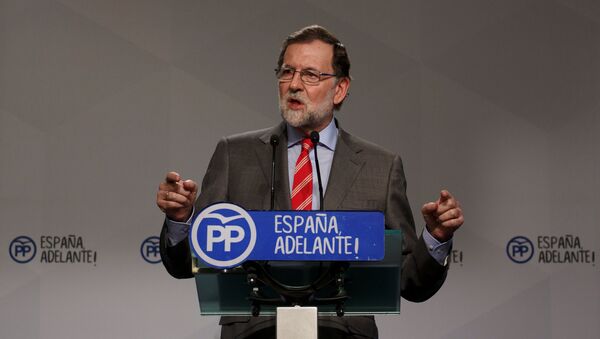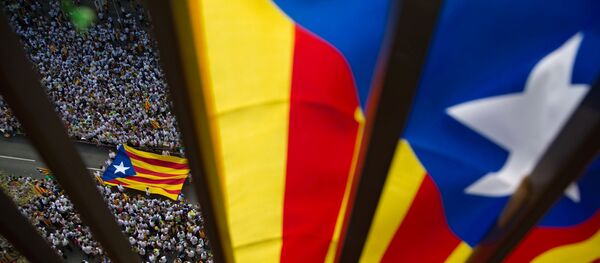Earlier in the day, El Pais newspaper reported that Catalan authorities had developed a mechanism they would use in the process of secession from Spain, regardless of whether or not a referendum on independence would be held. The so-called Law of Transition is set to replace the constitution for two months, during which time the Catalan parliament will begin the establishment of the Catalan Republic.
"They are blackmailing the state, democracy and the Spanish people. We do not accept it," Rajoy said at a press conference, adding that it was the most serious issue he had ever encountered during his political career.
The Spanish prime minister added that a proposal to discuss the Catalan issue in the Congress of Deputies, which was announced by the government last week, remained in force.
"What was published is a blackmail, Spain had not seen it for ages. It is destruction of the legal state, it means elimination of the law, of 500 years of national sovereignty, it means saying to the Spanish people that national sovereignty does not exist," Rajoy added.
In September 2016, Puigdemont pledged to look for an agreement on independence from Spain. Shortly afterwards, the Catalan parliament voted in favor of two resolutions: one which called on the regional government to hold an independence referendum in the fall of 2017, and a second which aimed at coordinating the autonomous community's conduct with the central Spanish authorities.
In March, Catalonia approved a draft budget which included an allocation of 5.8 million euros ($6.2 million) toward preparations for the independence referendum this year. The Spanish government decided to challenge the budget and launched a probe into the actions of the Generalitat, Catalina's government.
On November 9, 2014, about 80 percent of the Catalans who took part in a non-binding referendum on the region's status as part of Spain voted in favor of Catalonia becoming an independent state. Madrid has declared the referendum unconstitutional.




